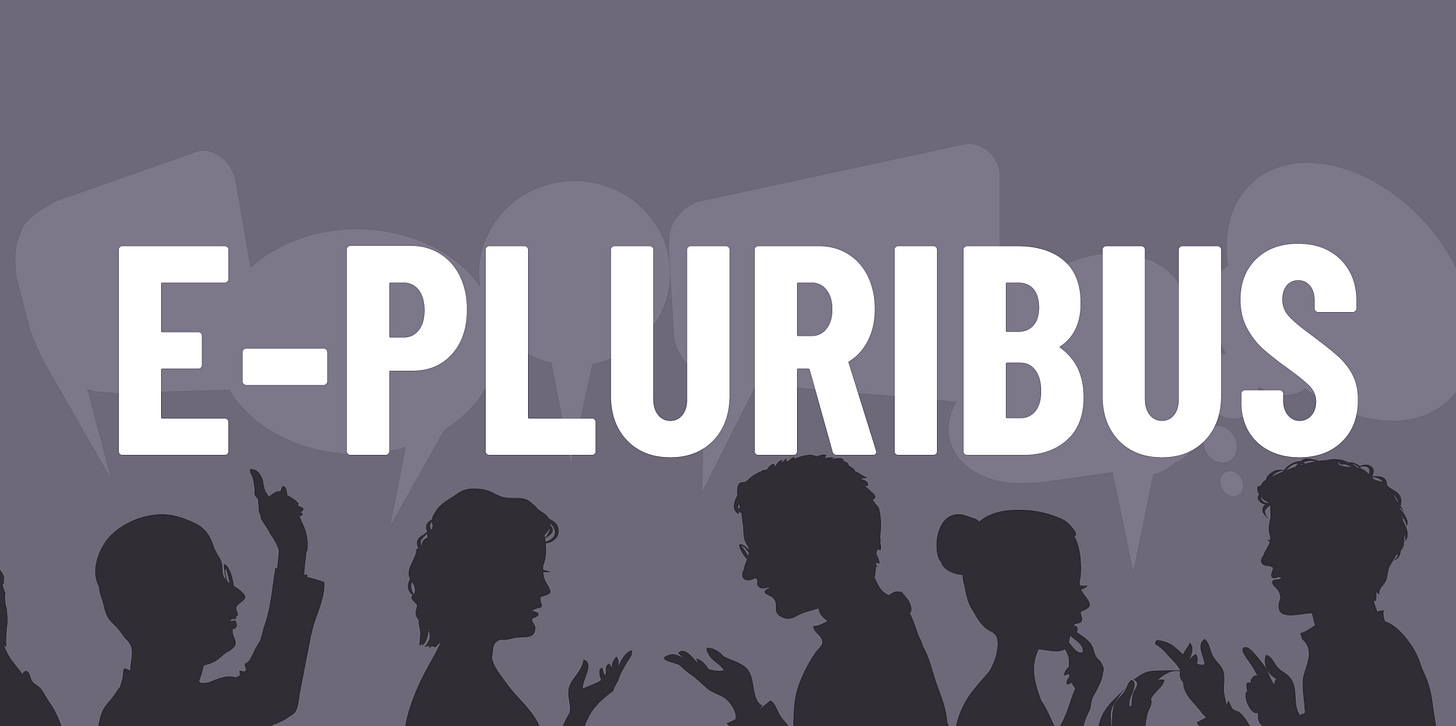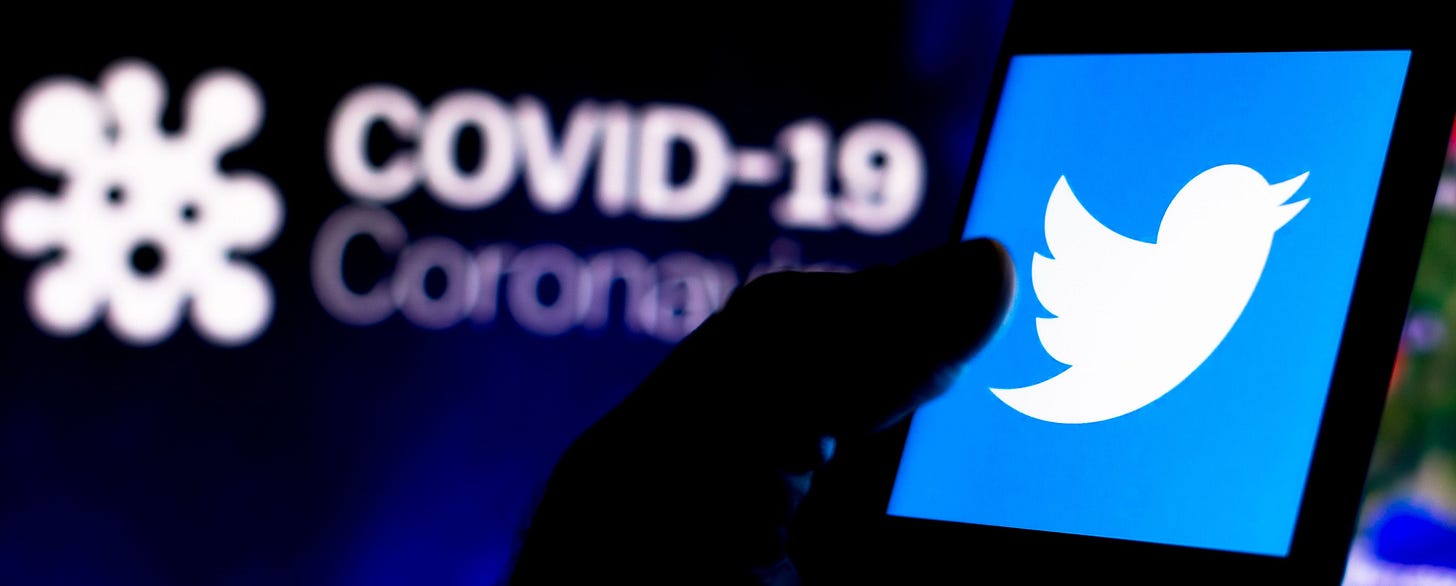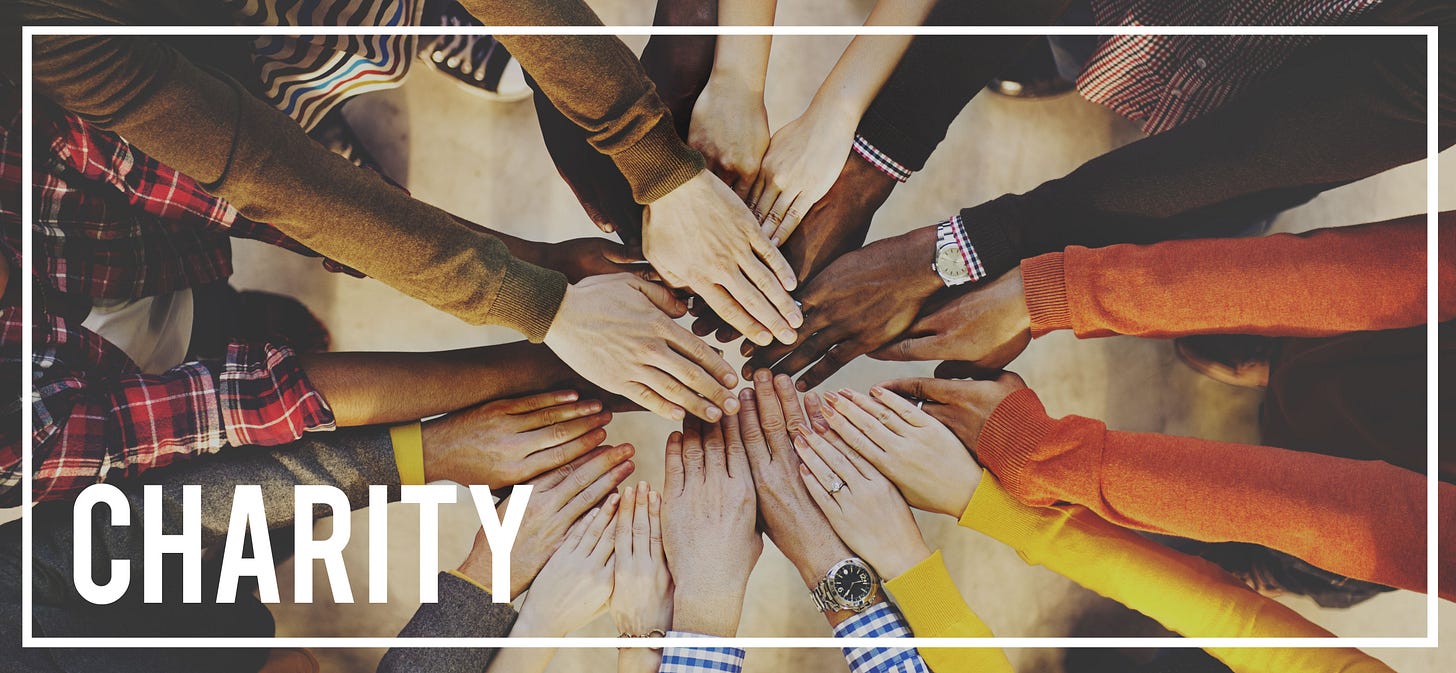E-Pluribus | December 27, 2022
Twitter and Covid; schools and racial "balance"; and the impact of diversity, equity and inclusion on charity.
A round-up of the latest and best writing and musings on the rise of illiberalism in the public discourse:
David Zweig: How Twitter Rigged the Covid Debate
Many in media and in the government have been intent on controlling the messaging during the pandemic. Writing for Bari Weiss’s The Free Press, David Zweig delves into the Twitter Files to report on the part Twitter played in what was considered orthodox and what was tagged as misinformation.
[T]witter did suppress views—and not just those of journalists like Berenson. Many medical and public health professionals who expressed perspectives or even cited findings from accredited academic journals that conflicted with official positions were also targeted. As a result, legitimate findings and questions about our Covid policies and their consequences went missing.
There were three serious problems with Twitter’s process.
First: Much of the content moderation on Covid, to say nothing of other contentious subjects, was conducted by bots trained on machine learning and AI. I spent hours discussing the systems with an engineer and with an executive who had been at the company for more than a year before Musk’s takeover. They explained the process in basic terms: Initially, the bots were fed information to train them on what to look for—but their searches would become more refined over time both as they scanned the platform and as they were manually updated with additional chosen inputs. At least that was the premise. Though impressive in their engineering, the bots would prove too crude for such nuanced work. When you drag a digital trawler across a social media platform, you’re not just catching cheap fish, you’re going to snag dolphins along the way.
Second: Contractors operating in places like the Philippines were also moderating content. They were given decision trees to aid in their process, but tasking non-experts to adjudicate tweets on complex topics like myocarditis and mask efficacy data was destined for a significant error rate. The notion that remote workers, sitting in distant cube farms, were going to police medical information to this granular degree is absurd on its face.
[. . .]
Third: Most importantly, the buck stopped with higher level employees at Twitter. They chose the inputs for the bots and decision trees. They determined suspensions. And as is the case with all people and institutions, there was both individual and collective bias.
At Twitter, Covid-related bias bent heavily toward establishment dogmas. Inevitably, dissident yet legitimate content was labeled as misinformation, and the accounts of doctors and others were suspended both for tweeting opinions and demonstrably true information.
Read it all here.
Erin Wilcox: Racial Balance Is Not a Worthwhile Goal for Public Schools
That schools are about education does not seem like a controversial proposition, but the push for equity and inclusion at times supersedes that primary function. Writing at Discourse Magazine, Erin Wilcox says that an overemphasis on “racial balance” actually just trades one kind of discrimination for another.
Racial balancing is when someone in power, like a school board or city council, manipulates admissions policies to ensure that the racial demographics of a school or group mirror those of the community. It often crops up in admissions for specialized or magnet schools, where there are numerous applicants competing for a limited number of seats.
[. . .]
To achieve that goal, it engaged in racial balancing by overhauling the admissions criteria for that high school so that Asian American students, who were “overrepresented” relative to the district as a whole, had a harder time getting in. Or put another way, the school board violated the equal protection clause of the Constitution by discriminating against Asian American students because of their skin color.
Sure, sometimes balance is worth striving for. Work-life balance is good. So is eating a balanced diet. But at Thomas Jefferson High School, achieving racial balance meant something very ugly had to happen: Those in power stopped seeing people as unique individuals—with individual likes, dislikes, talents and skills—and instead saw only their race.
Are you a 15-year-old soccer star who is also brilliant at math and science, terrible at crosswords and plays the tuba? Well, if school administrators are trying to racially balance your high school, the only thing that matters about you is that you’re Asian American. And if the STEM high school you’re applying to is 75% Asian American but your school district as a whole is only 40% Asian American, then racial balancing means you can’t compete on a level playing field simply because your skin is the wrong color.
Read the whole thing.
Joshua T. Katz: Hand Over Your Money and DIE
One need not be Ebenezer Scrooge to question some aspects of charitable giving. Joshua Katz of City Journal says the tendency of today’s cultural institutions to place diversity, equity and inclusion concerns ahead of their primary reasons for existing complicates the choice of where to direct one’s benevolence.
The problem: cultural organizations are at the vanguard of the gloria DIE. My praise for those who give generously and trust that their money will be used wisely must, sadly, be tempered, for the days of trust are over. Despite holding the commonplace view that donors should not have undue influence on the organizations they support, I now find myself in the position of suggesting that if you give—at whatever level, however small—you do in fact need to exhibit serious, if external, oversight and be prepared to pull funding when things get out of hand. In other words, you need to know when not to give any longer.
If you are paying attention, you have read Heather Mac Donald’s account of what is happening at the Art Institute of Chicago and will decline to donate. If you are paying attention, you have read Mac Donald on “classical music’s suicide pact” (parts one and two, so much there is to say) and will decline to donate to the Los Angeles Opera. And if—to move to colleges and universities—you are paying attention, you have read Mac Donald on the alleged systemic racism in academia and will decline to donate to Middlebury College or whatever your alma mater may be. Basically, anyone who reads even a sampling of Mac Donald’s brilliant essays will direct his or her money elsewhere.
Read it all.
Around Twitter
Via the Foundation for Individual Rights and Expression, some good news out of the Massachusetts Institute of Technology:
Director Tim Robbins, no conservative by any stretch, on the dangers of tribalism:
And finally, to paraphrase Syndrome, when everyone has a perfect 4.0, no one does:









